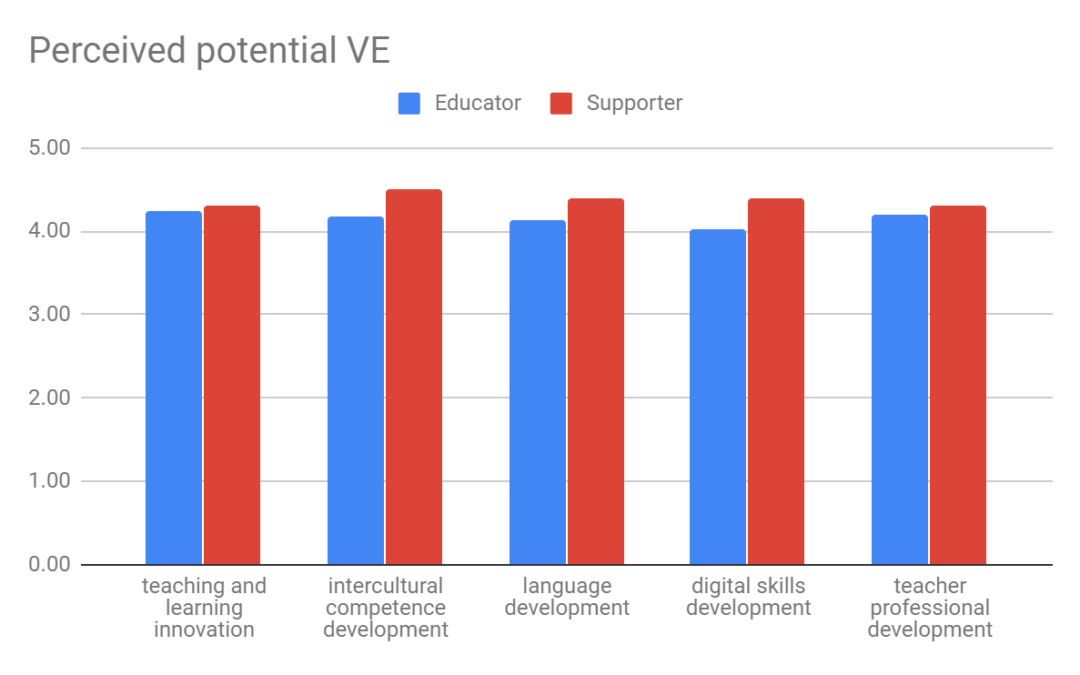The EVOLVE baseline study on the awareness and use of Virtual Exchange (VE) in Higher Education across Europe was recently completed. The study targeted universities belonging to the Coimbra Group and SGroup university networks, but we also received responses from other universities.
The study found that VE is not yet widely known as educational practice by key stakeholders, such as educators, educational supporters, internationalisation officers and policy officers and managers. Policy officers and managers show a slightly higher degree of awareness, but this may partly be due to the fact that they associate VE with virtual mobility or online learning more generally.
VE is not yet used on a large scale by respondents in our sample. The main disciplines where it is implemented and understood are in Education; Arts and Humanities (especially languages); and Social sciences, journalism and information. Implementation, however, is not restricted to these areas and covers most other disciplines distinguished by our study. Support, when it is provided, is normally in the form of technical and pedagogical assistance; institutional recognition and incentives appear to be generally lacking; and data about inclusion at course or curriculum level appear to be inconclusive. And finally, although VE is not yet widely referenced in strategies and policies for eLearning, professional development and internationalisation, a group of 10 to 15 universities appear to be moving towards further integration at strategic and policy levels.
On the other hand, the potential of VE for educational innovation, skills development and internationalisation are widely acknowledged. More specifically, educators and educational supporters rate VE highly as a tool for teaching and learning innovation, development of intercultural competence, language and digital skills, as well as subscribing to its role in teacher professional development. Overall stakeholders also highly rank its potential for internationalisation, linking it to educational as well as economic benefits.
Finally, it is promising to see that there is substantial interest from each of the stakeholder groups to learn more about VE by participating in training. Training programmes such as those offered through EVOLVE and Erasmus+ Virtual Exchange respond to this need. In addition, through follow-up studies and interviews in institutions seeking to implement VE, we will try to find out more about factors of success and failure in this promising field of educational innovation and share these with the community at large in future publications.
Download the full report here.

